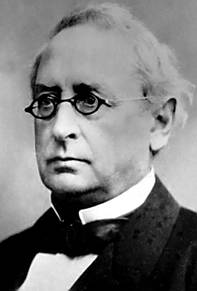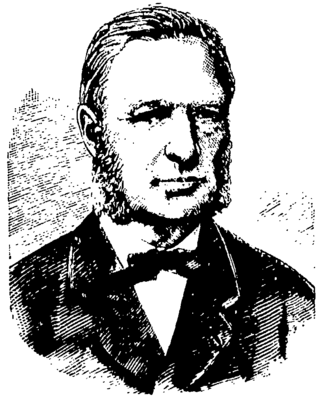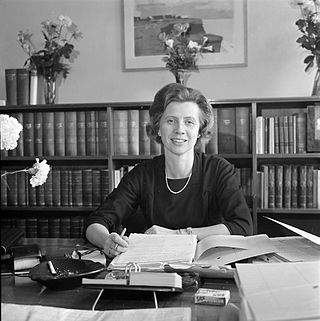Related Research Articles
The politics of Norway take place in the framework of a parliamentary, representative democratic constitutional monarchy. Executive power is exercised by the Council of State, the cabinet, led by the prime minister of Norway. Legislative power is vested in both the government and the legislature, the Storting, elected within a multi-party system. The judiciary is independent of the executive branch and the legislature.

Johan Sverdrup was a Norwegian politician from the Liberal Party. He was the first prime minister of Norway after the introduction of parliamentarism and served as the fourth prime minister of Norway. Sverdrup was prime minister from 1884 to 1889.

The Liberal Party is a centrist political party in Norway. It was founded in 1884 and it is the oldest political party in Norway. It is positioned in the centre on the political spectrum, and it is a liberal party which has over the time enacted reforms such as parliamentarism, freedom of religion, universal suffrage, and state schooling.

Christian Homann Schweigaard was a Norwegian politician of the Conservative Party. He served as the 3rd prime minister for two months in 1884, a period after the impeachment of his predecessor Christian August Selmer called Schweigaard's Ministerium. Schweigaard held a number of key positions, including Chairman of the Conservative Party from 1889–1891 and 1893–1896, as well as Parliamentary Leader from 1889–1891 and 1894–1895. He was Emil Stang's indispensable partner, leading the Conservative Party's policy and organizational development in the 1880s and 1890s.

Christian August Selmer was a Norwegian lawyer and a magistrate. He served as a member of the Norwegian Parliament, Minister of Defense and Minister of Justice. He was the 2nd prime minister of Norway in Christiana between 1880 and 1884.

Walter Scott Dahl was a Norwegian jurist and member of the Norwegian Parliament with the Liberal Party.

Wolfgang Wenzel von Haffner was a Norwegian naval officer and politician.

Nils Christian Egede Hertzberg was a Norwegian theologian, educator and politician.

Jens Holmboe was a Norwegian politician for the Conservative Party. A jurist by education, he was a member of the Norwegian Parliament for five terms, and held several different government posts from 1874 to 1884.
Frederik Christian Stoud Platou was a Norwegian legal scholar, Supreme Court justice, district stipendiary magistrate and politician.
Niels Mathias Rye was a Norwegian politician.

Elisabeth Schweigaard Selmer was a Norwegian jurist and politician for the Conservative Party.

Iver Steen Thomle was Norwegian jurist.
In Norway, impeachment, also known as the Constitutional Court of the Realm, is a judicial process with the power to convict Members of Parliament, Members of the Council of State, and Supreme Court Justices for criminal acts performed in line of duty. Impeachment is based on the Constitution of Norway §§ 86 and 87. Parliament authorizes the impeachment process, which establishes a tribunal consisting of five members of the Supreme Court and six lay members appointed by the Parliament of Norway. Impeachment has been used eight times, the last case being held in 1927.
The Council of State, is a formal body composed of the most senior government ministers chosen by the Prime Minister, and functions as the collective decision-making organ constituting the executive branch of the Kingdom. The council simultaneously plays the role of privy council as well as government Cabinet.
Events in the year 1884 in Norway.
Christopher Hansteen was a Norwegian judge. He served as an Associate Justice in the Supreme Court of Norway from 1867 to 1905, an unusually long period, and also spent a few years in politics.

Jon Gundersen Hol was a Norwegian engineer and activist. He is known for his pamphlet Rifleringen, published in February 1884, that resulted in his arrest for lèse majesté. In the pamphlet, he called for soldiers and civilians to arm themselves and encircle the Parliament of Norway Building, creating a "Ring of Rifles", should the need arise. The political situation in Norway at the time was unstable, with an ongoing impeachment case against the conservative government started by political liberals. King Oscar II of Sweden and Norway supported the conservative politicians, and Hol believed that a political and military counter-offensive was planned, hence the need for guarding the Parliament. The tensions between liberals and conservatives drew Hol into politics in the first place in 1880. Before this, he was an engineer by occupation and a writer, albeit apolitical. He increased his writing after 1880, and also involved himself in non-socialist trade unions, including the unsuccessful attempt of establishing a national trade union center in Kristiania.

Christian Frederik Gotfried Friele was a Norwegian newspaper editor. Born in Bergen to a prosperous family, he received a deficient education, but managed nevertheless to find his way into the conservative Morgenbladet newspaper. As its editor-in-chief, he became known for his wit and sharp-tongued remarks; he ruthlessly derided key contemporary political figures as "clerical lutefisk" and "royal stable jacks". In the 1884 impeachment case against Prime Minister Christian August Selmer, Friele sided with Selmer, and retreated from his position as editor of Morgenbladet following the court's verdict. Firmly believing that orders of merit would compromise his integrity as editor, he twice declined the offer of being rewarded the Order of St. Olav.